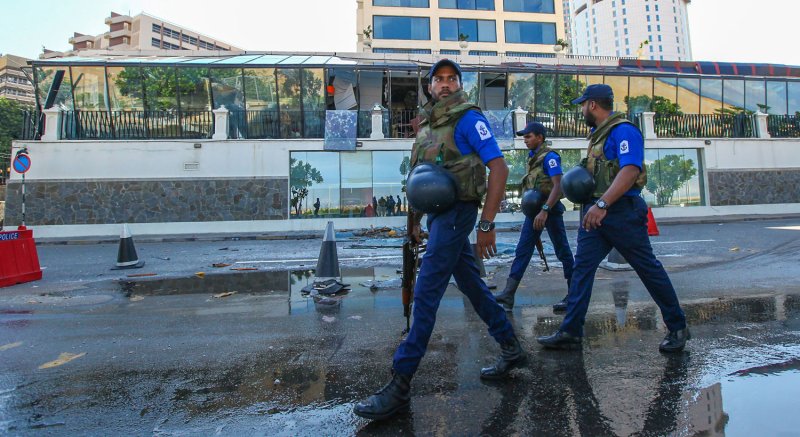Soldiers patrol an area near luxury hotels in Colombo on April 23, 2019. More than 300 people were killed in suicide bomb blasts on churches and hotels that were the South Asian island nation's deadliest violence in a decade while Sri Lanka police arrested 40 suspects in the wake of a state of emergency. Photo by Perera Sameera/UPI |
License Photo
April 29 (UPI) -- Sri Lankan President Maithripala Sirisena banned all forms of face coverings including the burqa in the name of national security, the president's office said.
Sirisena's office said starting Monday all types of face coverings will be banned as any garment that prevents one's identity from being ascertained is "a threat to national security and public safety."
"The president has issued this directive to ensure national security and a peaceful and reconciled society, where no ethnic group or community would be subjected to discomfort," the president's office said.
The ban was declared under an emergency law passed by the president within days of the April 21 terrorist bombing of three churches and three hotels throughout the country that killed more than 250 people.
The president also banned the Islamic terrorist groups National Thawheed Jamath and Jamathei Millath Ibrahim, believing they are behind the attacks, though the Islamic State has claimed responsibility.
"As such, all activities of those organizations as well as their property will be seized by the government," his office said. "Steps are being taken to ban other extremist organizations operating in Sri Lanka, under Emergency Regulations."
Meanwhile, the president said Friday that police will continue conducting raids and house searches to find other suspected terrorists.
"Major search operations have been undertaken," he told media at the President's House in the capital Colombo. "Every household in the country will be checked. The lists of permanent residents of every house will be established to ensure no unknown persons could live anywhere."
Since the bombings, local authorities have arrested dozens of suspects while the U.S. Embassy in Sri Lanka ordered all school-age family members of government officials in the country home as "terrorists may attack with little or no warning."















